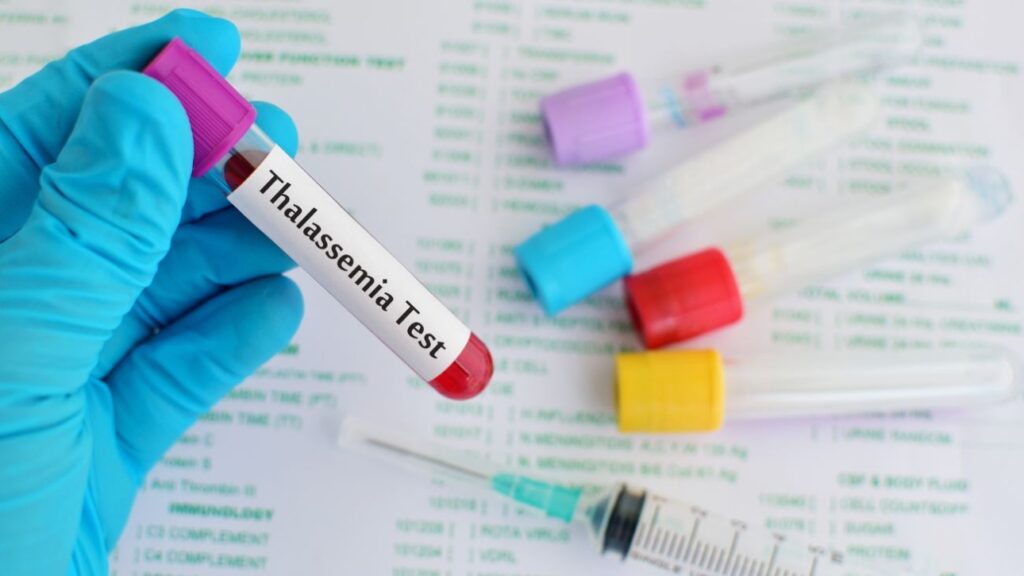Introduction
Living with thalassemia can bring unique health challenges that impact energy levels, immunity, and emotional well-being. However, with some lifestyle adjustments and regular health practices, people with thalassemia can improve their overall quality of life. This guide offers practical daily tips that can help you feel better, manage symptoms, and build resilience.
1. Focus on a Balanced Diet
A balanced diet can have a profound impact on managing thalassemia symptoms and reducing complications. Here’s what to consider:
- Avoid High-Iron Foods: Since many people with thalassemia are prone to iron overload, it’s essential to avoid foods rich in iron, such as red meat, shellfish, and iron-fortified cereals.
- Incorporate Vitamin-Rich Foods: Nutrients like calcium, vitamin D, and B vitamins are vital. Include dairy products, leafy greens, and fortified foods to boost these nutrients.
- Limit Vitamin C Intake with Meals: While vitamin C is beneficial, it also increases iron absorption. Consider limiting it during meals, especially if you’re at risk for iron overload.
- Hydration is Key: Drinking plenty of water helps your body flush out toxins, keeps blood circulation smooth, and improves energy levels.
2. Manage Fatigue with Rest and Energy Conservation
Fatigue is a common symptom in thalassemia, but you can manage it with smart energy-saving techniques:
- Prioritize Tasks: Each day, list essential tasks and prioritize them so that you don’t overexert yourself. Complete high-energy tasks during times when you feel most energetic.
- Plan for Breaks: Take frequent short breaks to rest and recharge. Try the “20-20-20 rule” by working for 20 minutes, resting for 20 seconds, and looking at something 20 feet away to avoid eye strain.
- Avoid Overcommitment: Learn to say no to activities that may drain your energy, especially on challenging days.
3. Engage in Safe Physical Activity
Regular exercise can improve energy levels, mood, and overall health for those with thalassemia. The key is finding safe, low-impact activities:
- Choose Low-Impact Exercises: Walking, swimming, and yoga are excellent options that reduce joint strain and improve cardiovascular health.
- Start Slow: If you’re new to exercise, start with light activities and gradually increase intensity. Listen to your body, and avoid pushing yourself to the point of exhaustion.
- Practice Mindful Breathing: Exercises like deep breathing, stretching, and meditation can help reduce stress and improve oxygen flow throughout your body.
4. Prioritize Regular Medical Appointments
Consistent monitoring and medical care are essential to managing thalassemia effectively. Set reminders for regular checkups, and keep a health journal to track your symptoms and any changes. Here are some key areas to focus on:
- Blood Transfusions: Many people with thalassemia require regular blood transfusions to manage anemia. Follow your doctor’s recommended schedule closely and don’t skip appointments.
- Iron Levels: If you undergo frequent blood transfusions, monitor iron levels to prevent iron overload. Ask your doctor about iron chelation therapy to help remove excess iron.
- Bone Density: Thalassemia can affect bone health, so regular bone density tests are beneficial, especially if you experience joint pain or weakness.
5. Build a Support Network
Living with a chronic condition can be emotionally challenging, so connecting with others who understand your experience can make a difference.
- Find Support Groups: Join a thalassemia support group, either online or locally, to connect with others who can offer guidance, encouragement, and a listening ear.
- Involve Family and Friends: Explain your needs and symptoms to your loved ones. Let them know how they can support you, whether by helping with daily tasks or just being there to talk.
- Seek Professional Counseling: A therapist or counselor can provide strategies to cope with stress, anxiety, and other emotions related to chronic illness.
6. Prioritize Mental Health and Well-Being
Managing mental health is crucial when living with a chronic condition. Thalassemia can bring feelings of isolation, anxiety, or depression, but these can be managed with supportive practices.
- Practice Mindfulness and Meditation: Spend a few minutes each day on mindful breathing, meditation, or guided relaxation exercises. Apps like Calm and Headspace can guide you through these practices.
- Set Small Goals: Break down larger goals into achievable steps to maintain motivation and boost confidence.
- Explore Creative Outlets: Hobbies like drawing, writing, or music can reduce stress and provide a sense of accomplishment.
7. Take Precautions Against Infections
People with thalassemia may have a weakened immune system, making them more vulnerable to infections. Precautions include:
- Get Vaccinated: Stay up to date with vaccines, especially for flu and pneumonia, to lower your risk of respiratory infections.
- Practice Good Hygiene: Wash your hands frequently and avoid close contact with people who are sick.
- Stay Warm in Cold Weather: Cold temperatures can exacerbate thalassemia symptoms, so dress warmly in winter and avoid prolonged exposure to the cold.
8. Create a Comfortable Sleep Routine
Quality sleep helps your body repair and recharge, which is especially important for those with thalassemia.
- Establish a Sleep Schedule: Try to go to bed and wake up at the same time each day. Consistency helps regulate your internal clock and improve sleep quality.
- Create a Relaxing Environment: A cool, dark, and quiet room can make falling asleep easier. Use blackout curtains, earplugs, or white noise if needed.
- Avoid Caffeine in the Afternoon: Caffeine can disrupt sleep, so limit intake after lunch to prevent late-night restlessness.
9. Track Your Health and Symptoms
Keeping a health journal can be helpful for tracking your symptoms, energy levels, and treatments.
- Record Daily Symptoms: Note your energy levels, mood, and any physical symptoms each day. This can help you spot patterns and understand what may affect your health.
- Monitor Treatment Side Effects: Some treatments may have side effects; recording them can help you discuss options with your doctor.
- Celebrate Small Wins: Recognize the days when you feel good or accomplish something, even if it seems minor. Positive reinforcement can help with motivation and mental well-being.
10. Educate Yourself and Stay Informed
Knowledge empowers you to take control of your health. Staying updated on research and new treatments can help you make informed decisions.
- Read Trusted Resources: Websites like the Thalassemia International Federation and National Institutes of Health (NIH) offer reliable information on thalassemia.
- Consult Your Doctor About New Treatments: Medical research is continually advancing, so ask your healthcare provider about any promising treatments or clinical trials that may benefit you.
- Stay Proactive with Self-Care: Beyond medical advice, taking small steps each day to support your health can make a big difference in how you feel.
Conclusion
While thalassemia presents its own set of challenges, a proactive approach to health can help manage symptoms and improve quality of life. From balanced eating and regular exercise to emotional support and a strong healthcare plan, these daily practices are key to thriving with thalassemia. Remember, you’re not alone in this journey—building a support network, engaging in self-care, and staying informed can help you live a fulfilling life with thalassemia.



